Busy environments are tricky for a lot of neurodivergent people (and just children in general). Shops, family events, concerts, indoor play centres are full of sensory stimulation and social expectations that can be hard for neurodivergent people.
So, why might people struggle with busy places?
Maybe because they notice noises really easily?
Neurodivergent people have a tendency to process sensory information differently. In short (and as a sweeping generalisation), they might notice sensations really easily, or find them really hard to notice.
So if someone is struggling with busy, noisy environments, it might be because they are noticing the noises a lot easier than you are.
The squeaking of a trolley, that parent over there yelling at their kid, the music over the loudspeaker, the guy listening to his music without headphones. These are all things that neurotypical people have a much easier time of filtering out. For some neurodivergent people, not so much.
So busy environments, with lots of noise can become overstimulating and stressful to the body and nervous system
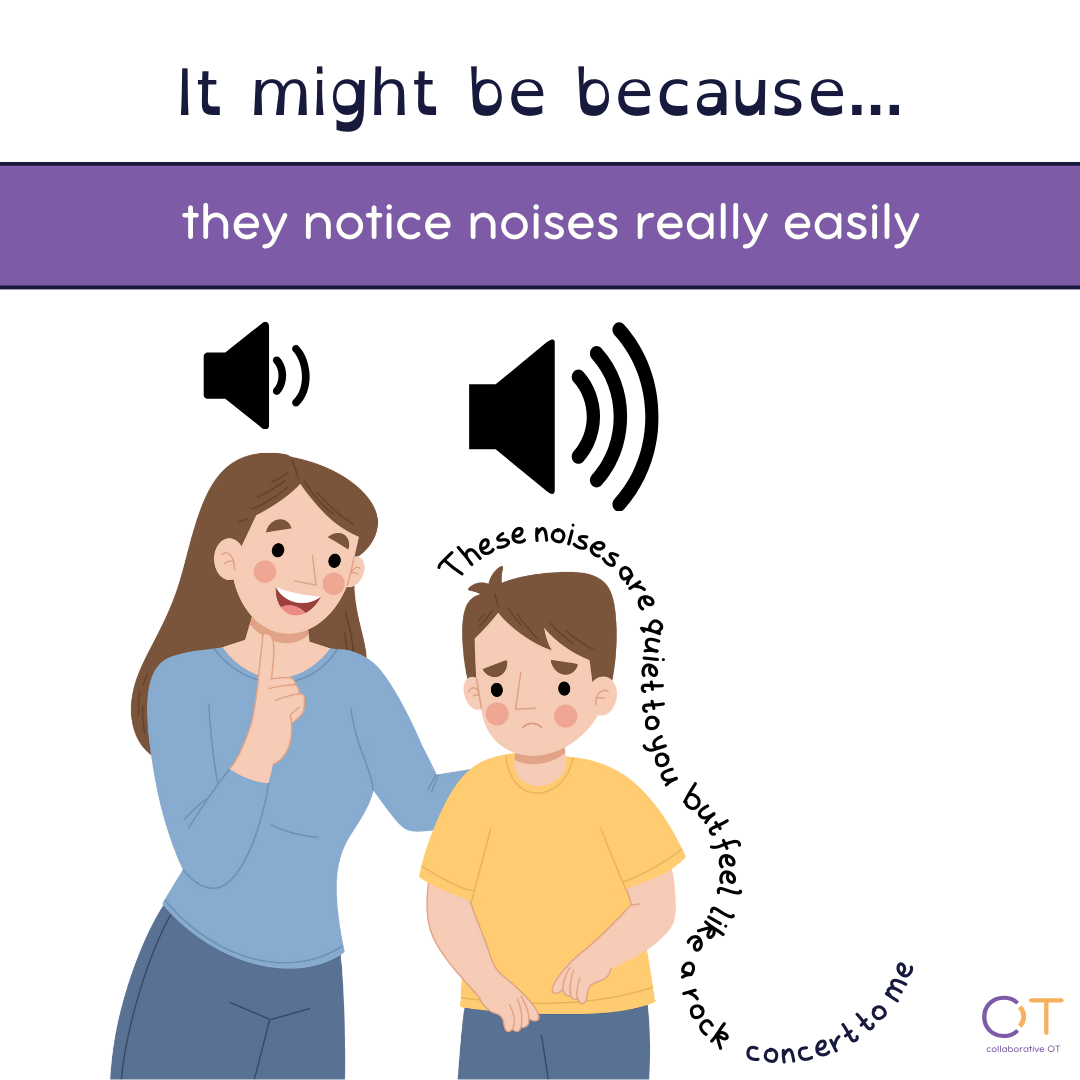
They also might notice visual stimuli easily?
Similar to noise, some neurodivergent people are exceptional and noticing visual things. But this can become difficult when there are lots of visual things, and they become hard to filter out.
The more stimuli, the more the body becomes stressed and so busy environments, with all of the lights, hustle and bustle, stuff to look at can all lead to feeling overwhelmed.
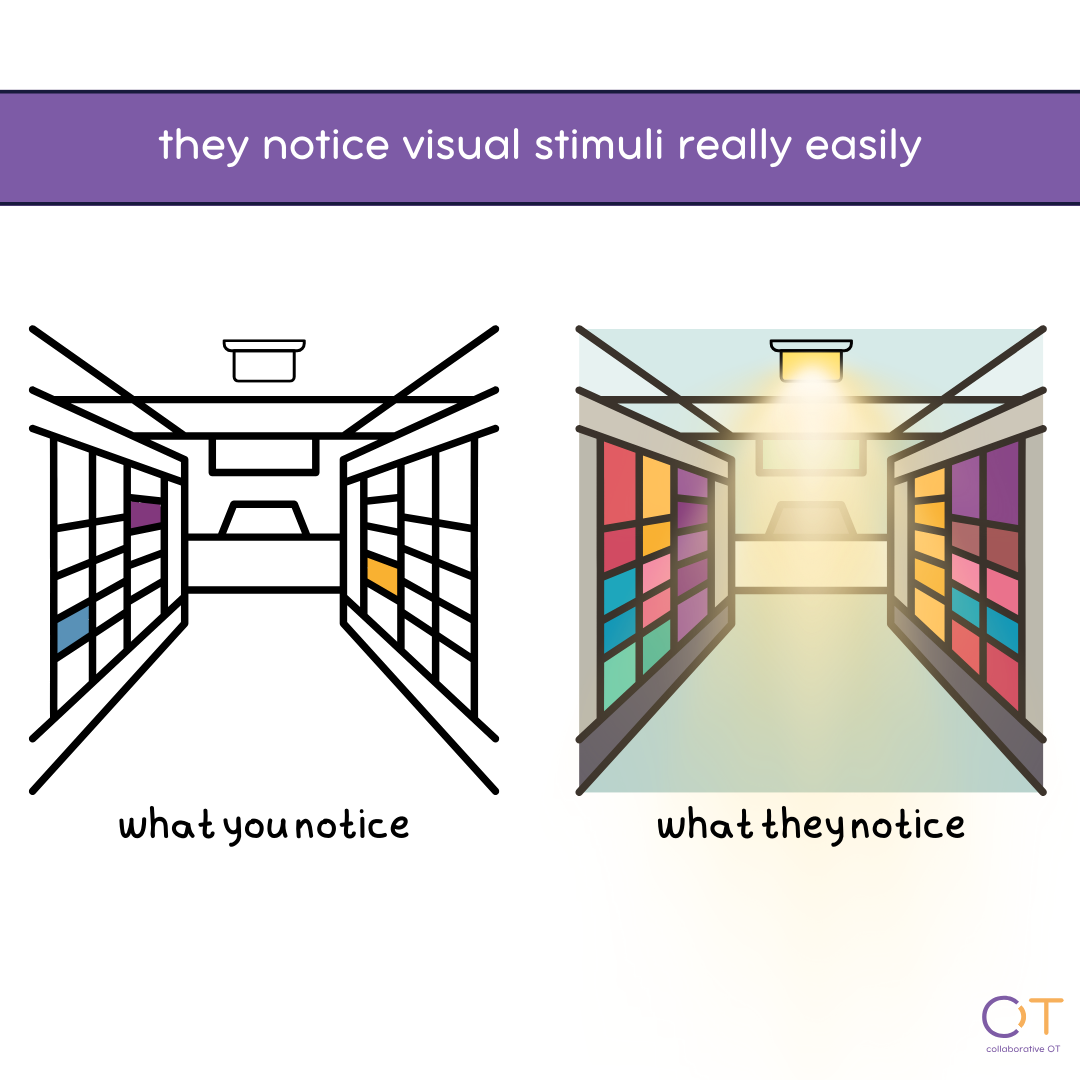
They also might not know what to do?
Or feel uncertain about what is expected of them. Now, this is a broad reason that might relate to:
- not understanding the routine (How long are we there for? When are we going home? What's happening next?)
- not understanding the social expectations (Who am I meant to speak to? What version of me do they want? What can or can't I say here?)
And it's hard to self-regulate if you don't know what's expected of you.
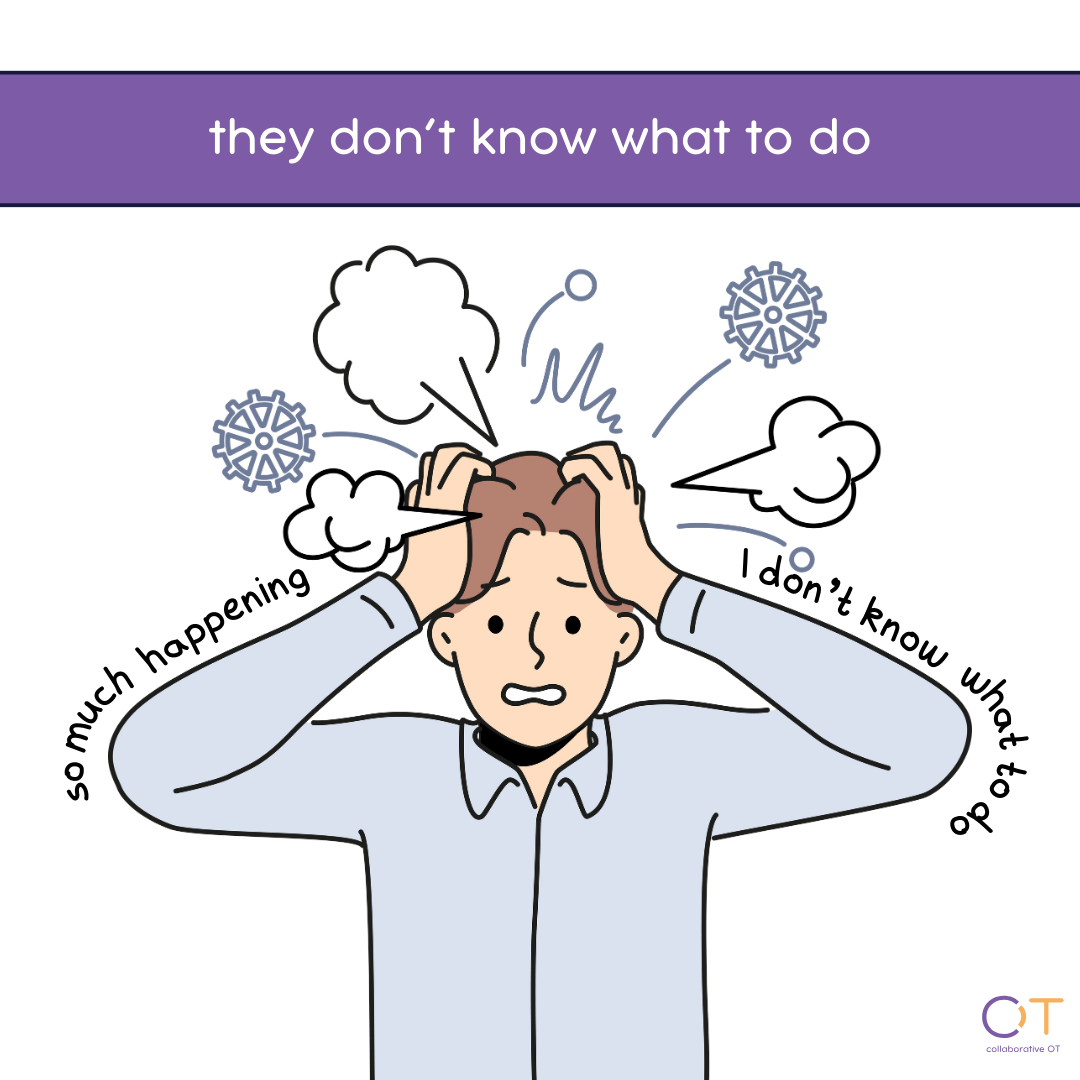
So how do we help? Well we can...
Attend busy places when Batteries are full
We have talked about Batteries in previous posts but essentially, they are a way of understanding capacity. When batteries are full, things are easy to do. When they're empty, they're hard to do. Batteries get drained and refilled differently by different people.
So, when we're talking about going to a busy place that might be hard for someone, it's better to do it when Batteries are full and your loved one has more power and energy to deal with the tricky situation.
This might look like:
- Only booking one busy event for the weekend, instead of two or three
- Scheduling in time before or after the busy event to recharge the battery
- Maybe not going to the event if batteries are too empty
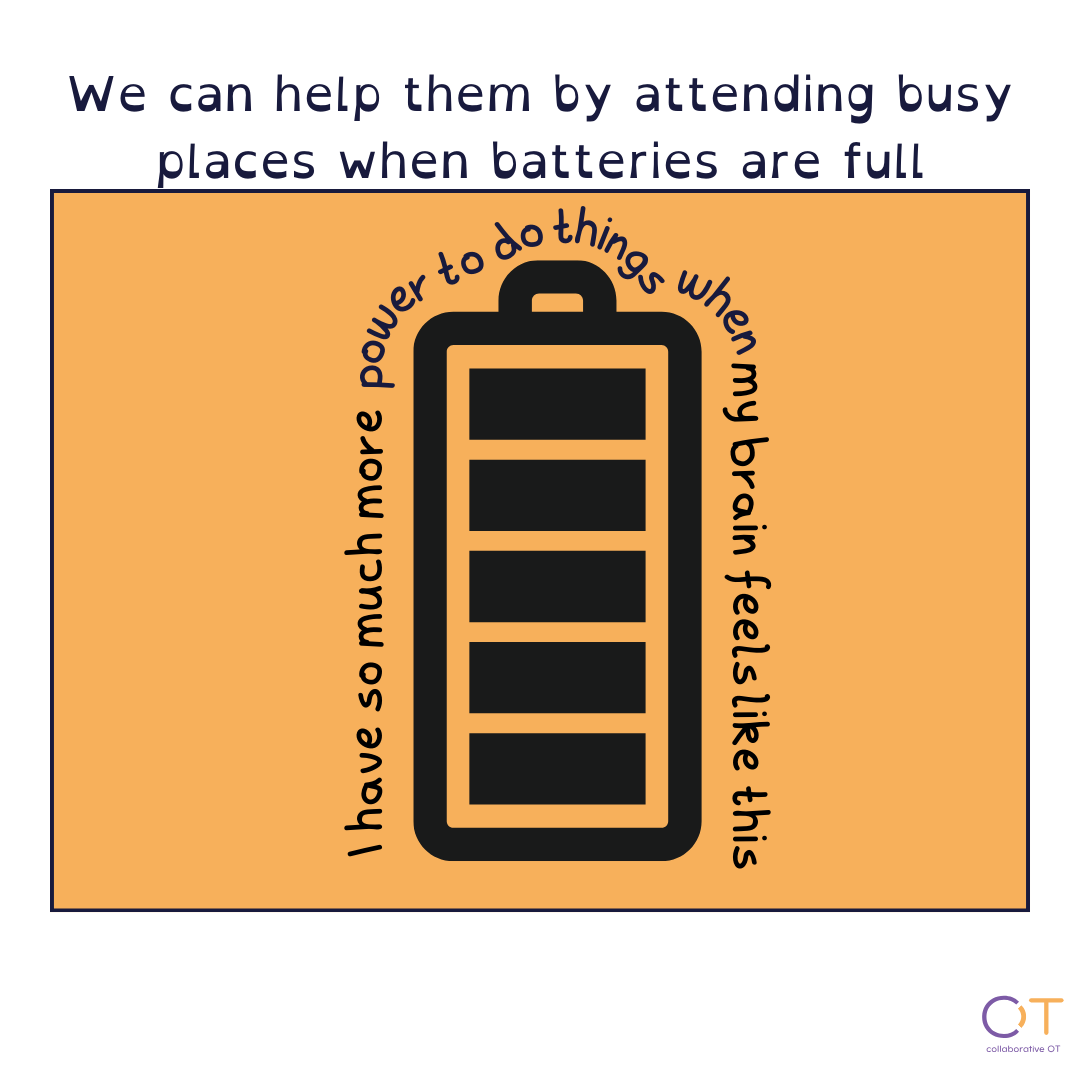
Taking breaks!
This is similar to Batteries above
So if being in a busy space is draining, taking a break might help recharge the persons battery or, at the very least stop it from draining so quickly.
This could look like a quick escape in the bathroom, taking a movement break, or even just going for a short walk.
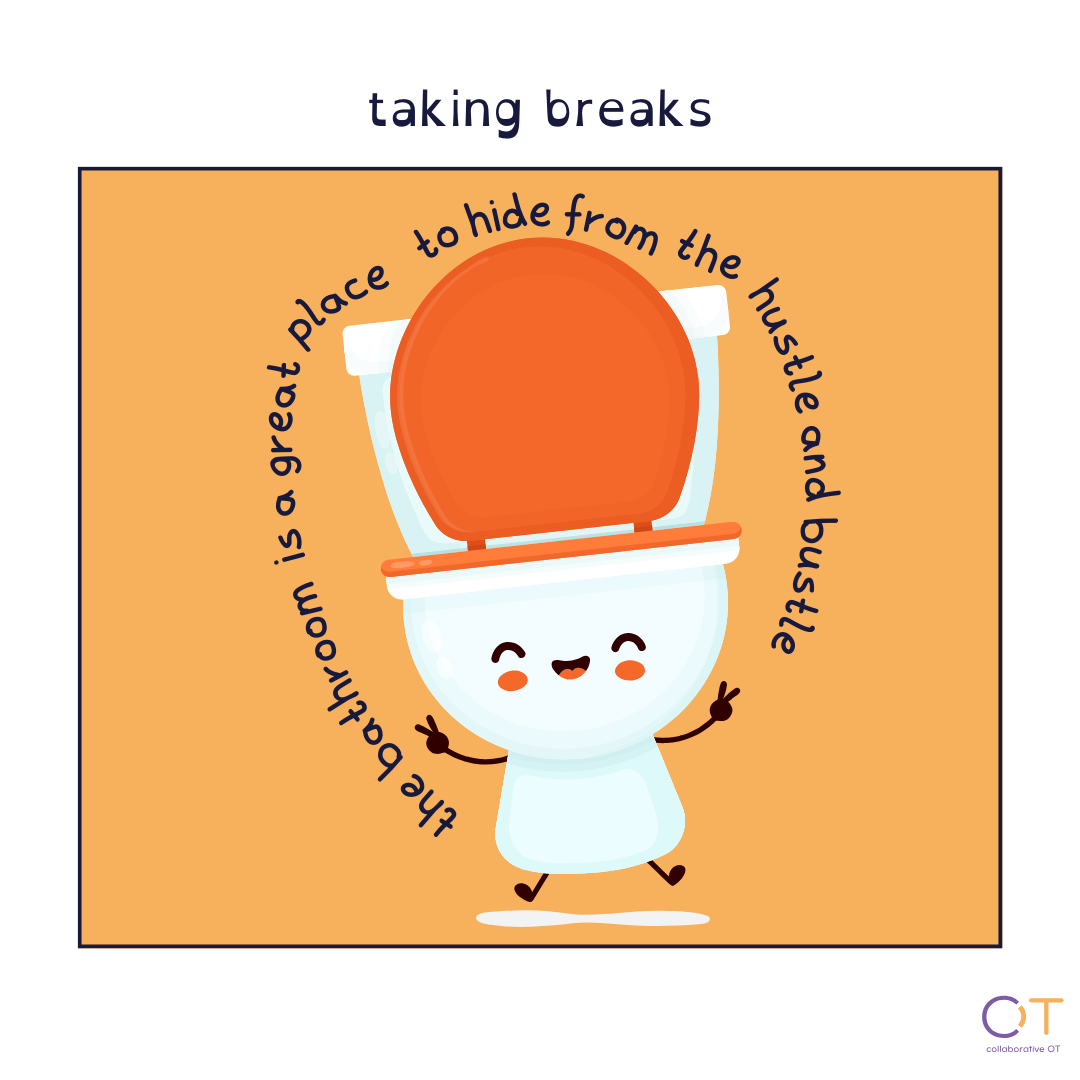
Set the expectations
It's hard for neurodivergent people to do things without understanding the full context first. So setting expectations with your loved one about the thing can be helpful.
Usually, I try to make sure people are informed about the following:
- When
- Where
- How long
- Sensations
- If you need help
- Afterwards
So if you were going food shopping, this might look like:
"We are going to the food shops after breakfast. We will be there for about an hour, or until we finish our shopping. It might be bright and noisy, and you might smell some food. If you need a break, you can let me know; I'll have your headphones with me. When we're done, we'll come home and do some drawing"
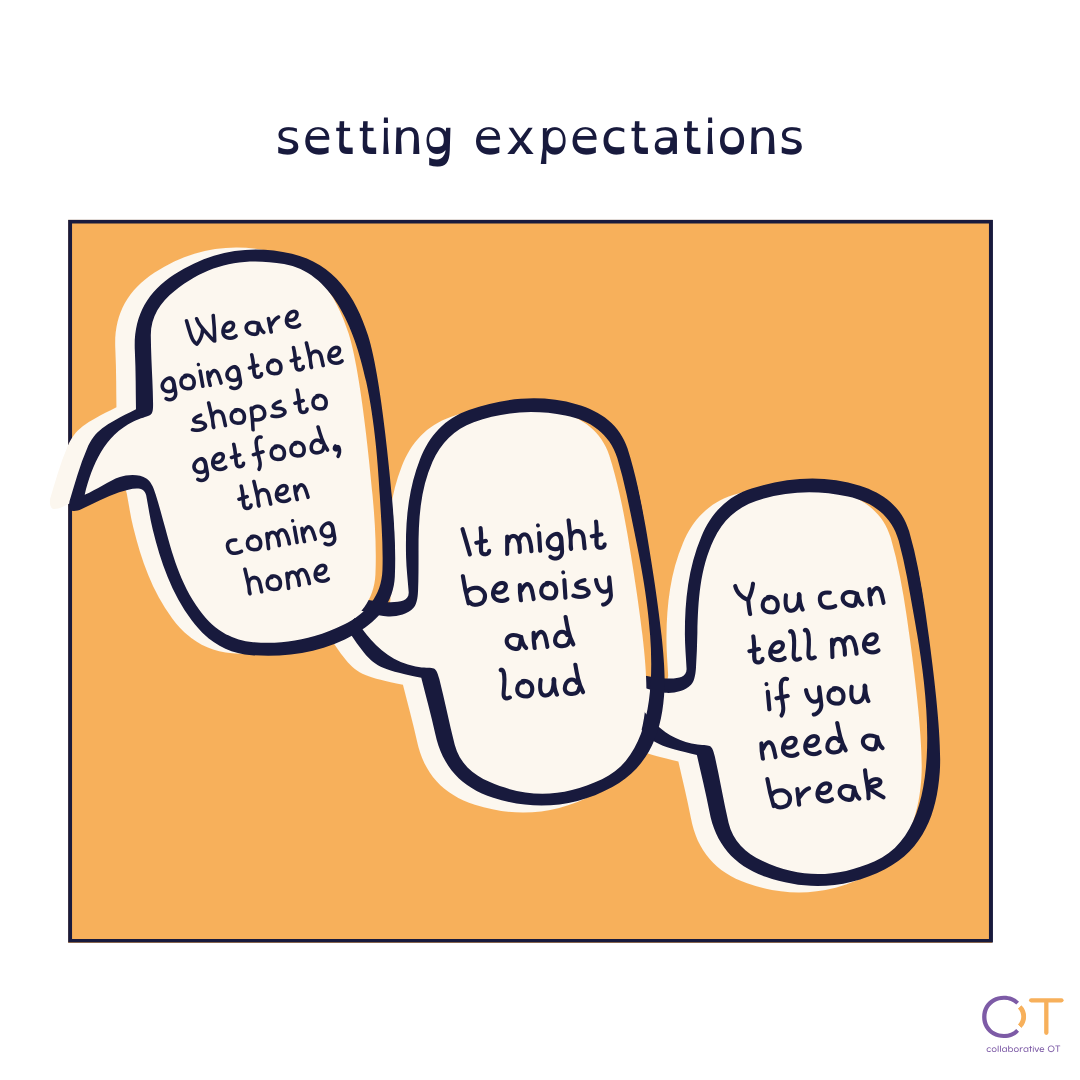
Lastly (for this post at least) you can use equipment to manage the sensory environment
This might look like:
- Headphones to manage the noise
- Sunglasses to manage the lights and visual stimuli
- Comfortable clothing to not add to the stress
- Fidgets to meet movement needs

In summary:
Your loved one might have trouble with busy environments because:
- They notice sensations easily and that can be overwhelming
- They don't understand the expectations or routine
- Their Batteries are empty
You can help them by:
- Going to events with full Batteries
- Taking breaks
- Set the expectations
- Using technology to manage sensory needs